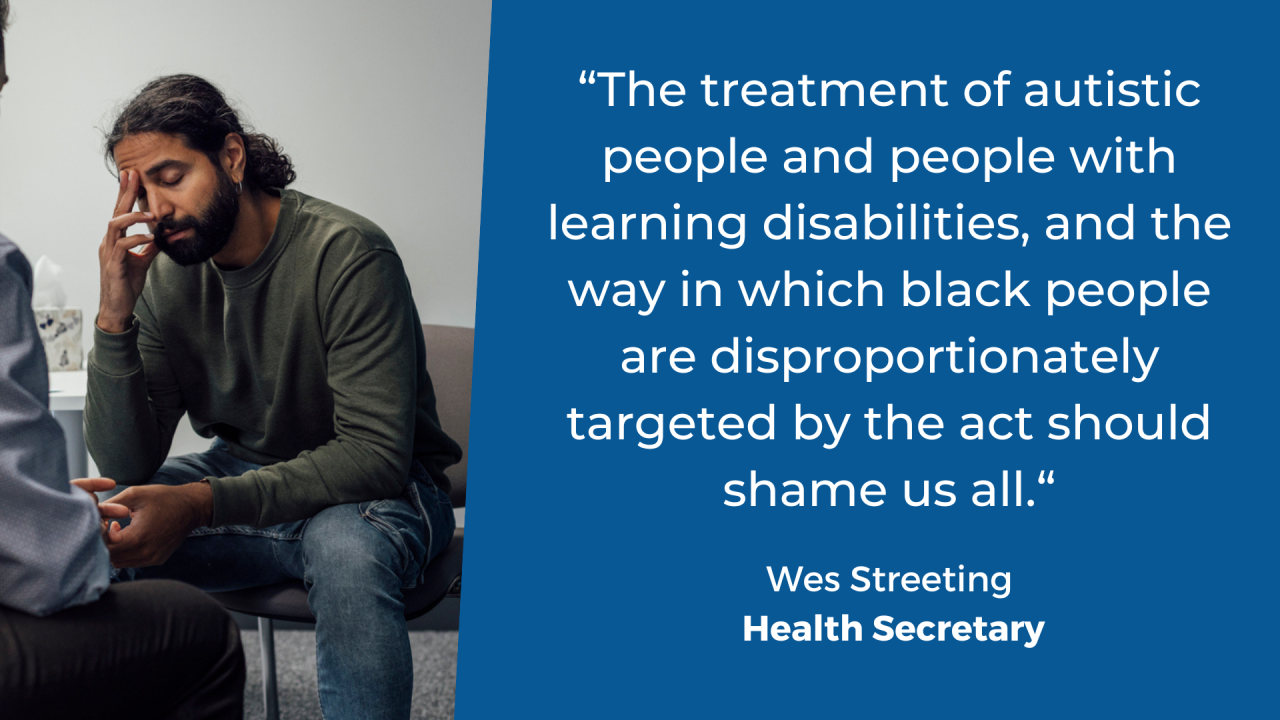The Department of Health and Social Care has announced that it is introducing updates to the Mental Health Act to parliament, to given patients more dignity and say over their care.
Currently, the laws don’t meet the modern standards of giving patients enough of a voice when it comes to their care after being sectioned under the Mental Health Act. This includes the fact that those experiencing severe mental illness can be put into police cells, with their nearest relative then being given the decisions over their care.
According to the government, black people are three times more likely to be detained under the act, while those who have a learning disability or autism are also often found to be sectioned inappropriately.
By introducing the changes, the government will look to address the changes in attitudes towards mental health since the passing of the original act, as it recognises that the laws around the treatment of people in mental health crises are outdated and ‘no longer tolerable.’ The Labour Party committed to modernising the bill in its General Election manifesto, and the changes will aim to make the act fit for purpose, improve patient experiences, and further protect patients, staff and the general public.

Wes Streeting, Secretary of State for Health and Social Care, said:
“Our outdated mental health system is letting down some of the most vulnerable people in our society and is in urgent need of reform.
“The treatment of autistic people and people with learning disabilities, and the way in which black people are disproportionately targeted by the act should shame us all.
“By bringing the Mental Health Act in line with the 21st Century, we will make sure patients are treated with dignity and respect and the public are kept safe.”
One of the changes that will be introduced will make it a legal requirement for each patient to have a care and treatment plan in place, with this being tailored and shaped by their individual needs and able to clearly establish what is required to discharge them. Patients will also be given the right to elect someone to represent their interests when they are detained.
Those with learning disabilities or autism will also benefit from the amendment to the amount of time they can be detained, with this being changed to add a limit of 28 days unless the person has a co-occurring mental health condition.
NHS National Mental Health Director, Claire Murdoch, added:
“This new Mental Health Act is a once-in-a-generation opportunity to ensure that patients experiencing serious mental illness and crises receive safe, modern, evidence-based care and that the needs and wishes of patients and their loved ones are central to care and better mental health outcomes.
“This comes alongside the NHS’s work to transform mental health services – either through intervening earlier with hundreds of NHS teams working in schools, or trialling new 24/7 crisis mental health hubs to prevent people needing hospital care in the first place, and if an admission to hospital is needed the health service is working with local services to ensure this is delivered in a safe and therapeutic environment close to people’s homes.”
The bill will also include measures to keep staff and the general public safe, with decision-making around detention, discharge, care and treatment to be the focus of some measures. One such measure will be the requirement for the Responsible Clinician to consult another person before the patient is discharged, with a second opinion helping to ensure that care is compassionate and effective.
Image credit: iStock



















